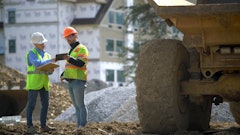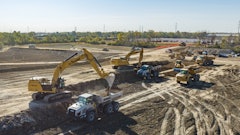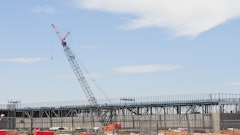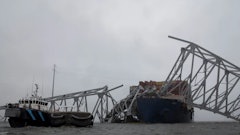Given the current partisan atmosphere in our nation's capital, it can seem a near miracle when legislators from the two major parties agree on any given topic. It's even more amazing when they come together to propose legislation targeted toward the less than glamorous subject of infrastructure improvement.
Clearly, America's infrastructure is in dismal shape. In the March 2005 Report Card for America's Infrastructure, generated by the American Society of Civil Engineers (ASCE), the overall condition of the infrastructure sectors studied rated a D grade, with only two of 15 sectors showing any signs of marginal improvement. The ASCE estimates a $1.6 trillion investment is needed just to bring the infrastructure back to an acceptable condition. In addition, government estimates show the backlog of unfunded Army Corps of Engineers operation and maintenance projects mandated by Congress at $1.2 billion, a $250 million increase since 1999.
Recognizing the scope of the problem, U.S. Senators George V. Voinovich (R-OH), Thomas Carper (D-DE) and Hillary R. Clinton (D-NY) set aside political differences to introduce the National Infrastructure Improvement Act of 2006. If enacted, the bill would establish a National Commission on the Infrastructure of the United States, charged with the responsibility to "ensure the nation's infrastructure meets current and future demands and facilitates economic growth."
The impetus behind the timing of the bill proved to be the devastating events in the Gulf last year. "The tragedy of Hurricane Katrina made painfully clear the dire need for improvements to our aging infrastructure," noted Senator Voinovich in announcing the proposed legislation. "The deterioration of our nation's waterways and infrastructure systems are impacting our economy, the environment and the welfare of the American people.
"This legislation," he added, "gets at the heart of the problem by establishing a commission that will provide concrete recommendations for future infrastructure needs."
In addition to establishing the commission, the bill would mandate:
- completion of a study by February 2009 that will address all matters relating to the state of the nation's infrastructure, including capacity of infrastructure improvements to sustain current anticipated economic development, the age, condition and capacity of public infrastructure, repair and maintenance needs, financing methods and investment requirements;
- development of recommendations for the federal plan outlining infrastructure priorities;
- completion of a report to Congress by February 2009 that will detail infrastructure legislation deemed necessary for the next five, 15, 30 and 50 years.
While the bill does little to address immediate infrastructure needs, it is clearly a step in the right direction toward developing a plan to repair and maintain this vital national resource in the years to come.
To view specific details of the bill, you can visit www.theorator.com/bills109/s2388.html. The site also includes links to contact your local representative or senator to add your voice of support to this legislation.


























